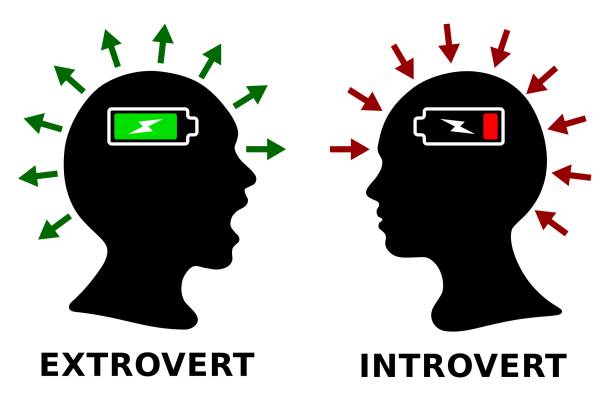For decades, the brain was the unquestioned ruler of human behavior. It was the control center, the throne room of thought, emotion, and decision-making. Meanwhile, the gut — that long, winding tube where food is digested — was seen as little more than a plumbing system. Yet science has begun to rewrite that hierarchy.
Today, researchers are discovering that the gut is not just a passive passenger in the story of our mental health. Instead, it’s an active participant, a co-author in shaping mood, behavior, and even personality. This connection, often called the gut-brain axis, is transforming how we understand depression, anxiety, stress resilience, and social behavior.
The revelations have been so profound that some scientists now call the gut the “second brain.” But to understand how a digestive organ could influence something as complex as human emotion, we have to dive into the hidden world of microbiology, neurology, and chemistry that lives inside every one of us.
The Gut-Brain Highway
At the core of this mind-gut relationship lies a superhighway of communication — the vagus nerve. This wandering nerve, whose name comes from the Latin word for “wandering,” stretches from the brainstem to the abdomen, sending signals in both directions.
For years, neuroscientists assumed that the brain did most of the talking and the gut simply followed orders. But newer research paints a different picture: about 90% of the fibers in the vagus nerve carry information from the gut to the brain, not the other way around. This means your gut is constantly whispering — or sometimes shouting — into the brain’s ear.
The messages the gut sends aren’t just about hunger or fullness. They can influence emotional processing, stress responses, and even the desire for certain foods. If you’ve ever felt “butterflies” before a big presentation or lost your appetite after bad news, you’ve experienced the gut-brain conversation firsthand.
Microbes with a Voice
Within this gut-brain dialogue, the most surprising contributors are not human cells at all — they are microbes. Your gut is home to trillions of bacteria, viruses, and fungi collectively called the gut microbiota. These microscopic residents outnumber your own human cells and weigh as much as the human brain itself.
While this might sound unsettling, these organisms are not freeloaders. Many are essential partners, helping digest food, synthesize vitamins, and train the immune system. But their influence extends beyond digestion into the realm of mental health.
Gut bacteria produce an array of chemicals, including neurotransmitters like serotonin, dopamine, and gamma-aminobutyric acid (GABA) — the very same molecules brain cells use to regulate mood. In fact, around 90% of the body’s serotonin is produced in the gut. Although gut-derived serotonin doesn’t cross directly into the brain, it can influence the nervous system through indirect pathways, altering stress responses and emotional states.
When the Gut Falls Out of Balance
A healthy gut microbiome is like a balanced ecosystem, with many species working together in harmony. But modern life can disrupt this balance. Diets high in processed foods, chronic stress, antibiotics, and lack of sleep can shift the composition of gut bacteria, reducing diversity and favoring species linked to inflammation.
Inflammation is a crucial part of the gut-brain story. When harmful bacteria flourish or the gut lining becomes compromised — a phenomenon sometimes called “leaky gut” — inflammatory molecules can enter the bloodstream. These molecules can travel to the brain and affect areas involved in mood regulation, such as the hippocampus and amygdala.
Numerous studies have linked gut dysbiosis (microbial imbalance) with depression, anxiety, and cognitive changes. While it’s not always clear whether the imbalance causes the mood changes or vice versa, the two seem to reinforce each other in a feedback loop that can be difficult to break.
The Science of Emotional Regulation
One of the most intriguing aspects of gut-brain research is how it reframes emotional regulation. Traditionally, mood disorders were thought to stem from brain chemistry alone — imbalances in neurotransmitters or altered neural circuitry. But if the gut microbiome can influence those very chemicals, then the digestive tract becomes a potential target for improving mental health.
Animal studies have been especially revealing. Mice raised in germ-free environments — without any gut microbes — show exaggerated stress responses, altered social behavior, and even differences in brain structure compared to normal mice. Introducing certain bacterial strains into their guts can reverse some of these effects, suggesting that microbes help calibrate the nervous system’s baseline settings.
In humans, the evidence is building through studies on probiotics, prebiotics, and dietary interventions. Some research shows that certain probiotic strains can reduce symptoms of anxiety and depression, while prebiotics — fibers that feed beneficial bacteria — can lower cortisol, the body’s primary stress hormone.
Stress, Cortisol, and the Microbial Buffer
Stress is one of the most powerful disruptors of gut health. When you’re stressed, your body releases cortisol, which can alter gut motility, reduce blood flow to the digestive tract, and change the balance of microbial species. This creates a vicious cycle: stress harms the gut, and an unhealthy gut makes the body more sensitive to stress.
However, a resilient gut microbiome can act like a buffer against stress. Certain bacterial species produce short-chain fatty acids (SCFAs) like butyrate, which help strengthen the gut lining, reduce inflammation, and support the production of calming neurotransmitters. People with diverse and balanced microbiomes often show lower stress reactivity, hinting at a built-in protective mechanism shaped by diet, environment, and lifestyle.
Food as a Mood Modulator
Given the gut’s role in shaping mood, it’s no surprise that diet emerges as a key player. Diets rich in fiber, fermented foods, and polyphenols (plant compounds found in berries, tea, and dark chocolate) tend to foster a diverse microbiome. Such diets are also linked to lower rates of depression and anxiety.
One landmark study, the SMILES trial, showed that people with major depression who switched to a Mediterranean-style diet rich in vegetables, whole grains, legumes, and healthy fats experienced significant improvements in mood compared to a control group. While the exact mechanisms are still being unraveled, researchers believe that feeding the gut microbiome is a central part of the benefit.
On the flip side, diets high in sugar, refined carbs, and processed fats can feed harmful bacteria and promote inflammation, potentially worsening mood disorders. This might explain why the “Western diet” is consistently associated with poorer mental health outcomes.
Gut Health Across the Lifespan
The gut-brain connection begins long before adulthood. In fact, early life is a critical period for shaping the microbiome and, by extension, mental health. Babies inherit their first microbes from their mothers during birth and breastfeeding. These early microbial exposures help train the immune system and may influence the risk of anxiety or depression later in life.
During adolescence, hormonal changes and dietary habits can remodel the gut microbiome, potentially influencing emotional stability. In older adults, microbial diversity often declines, and this loss has been linked to cognitive decline and mood changes. Supporting gut health at every stage of life could therefore be a lifelong investment in emotional well-being.
The Social Side of the Gut-Brain Axis
Remarkably, gut microbes might even influence social behavior. Experiments in mice have shown that altering the microbiome can change how much time they spend interacting with other mice. In humans, preliminary studies suggest that people with healthier gut microbiomes tend to have more active social lives, possibly because lower inflammation and better mood make social engagement more rewarding.
The idea that microscopic organisms could subtly shape our friendships, empathy, and cooperation is both thrilling and unsettling. It challenges the notion that our personalities are entirely self-made and suggests that part of who we are is co-written by the life forms living inside us.
Mental Health Treatments of the Future
As gut-brain science matures, it is opening new avenues for mental health treatments. Instead of focusing solely on antidepressants or talk therapy, future approaches might include personalized diets, targeted probiotics, and even fecal microbiota transplants to restore a healthy gut ecosystem.
Already, some psychiatrists are exploring “psychobiotics” — probiotics specifically selected for their mental health benefits. While the field is still young and not all claims hold up under rigorous testing, the potential is enormous. Imagine a treatment plan for depression that includes not only therapy and medication but also a prescription for fermented foods, fiber-rich meals, and microbiome-supporting supplements.
A Relationship Worth Nurturing
The gut-brain axis is not a one-way street. Just as the gut influences the brain, the brain influences the gut. Practices that reduce stress — such as mindfulness meditation, regular exercise, and adequate sleep — also promote gut health. This creates a virtuous cycle: a healthier brain supports a healthier gut, which in turn supports a healthier brain.
In a way, the science is telling us something deeply human: that our bodies are not collections of isolated parts but intricate systems of connection. Your thoughts, feelings, and behaviors are not just “in your head” — they’re also in your stomach, your intestines, and in the trillions of microbial voices speaking through your nervous system.
The Big Picture
The story of gut health and mood is still unfolding. While not every claim about the microbiome will stand the test of time, the evidence so far is clear: the gut plays a significant role in emotional well-being and behavior. This insight carries profound implications for how we care for ourselves and each other.
In the end, tending to your gut may be one of the most profound acts of self-care you can make — not just for your digestion, but for your happiness, your resilience, and even your sense of connection to the world.






